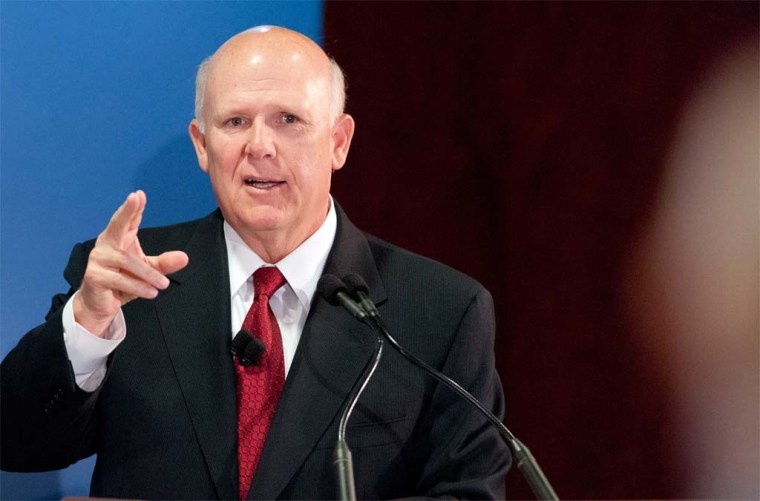General Motors will repurchase 200 million shares of its own stock currently held by the U.S. Treasury, with the White House announcing plans to sell off its remaining 300 million shares within the next 12 to 15 months.
The automaker will pay $27.50 for the shares it will acquire, a 7.9% premium over the $25.49 closing price on December 18, 2012 – but that is also a sharp discount from the $33 price set during GM’s initial public offering in November 2010. And it means taxpayers will lose billions on the sale.
“This announcement is an important step in bringing closure to the successful auto industry rescue, it further removes the perception of government ownership of GM among customers, and it demonstrates confidence in GM’s progress and our future,” said Dan Akerson, chairman and CEO of GM.
The Detroit Bureau: GM Revealing new Cadillac ELR Plug-in at Detroit Auto Show
The automaker noted that it will take a $400 million charge against earnings during the fourth quarter in connection with the stock repurchase.
As recently as a week ago, during a holiday event with reporters, CEO Akerson indicated his desire to have the government sell off its stake – though he gave no indication any move was imminent. Most analysts had not expected an announcement until sometime in early 2013.
Treasury has been under strong pressure to announce an exit plan – an issue that failed GOP presidential candidate Mitt Romney repeated frequently during his campaign. He called on the White House to sell off its stake last summer, though at that point GM was trading as low as $18.72 a share. At that price, the government would have received about $1.5 billion less than it will now get, a total of $5.5 billion for the initial 200 million share sell-off.
The Detroit Bureau: Toyota Pays Record Fine for Stonewalling Safety Recall
Industry analysts had estimated a sale price of $53 would be needed to recoup the government’s full investment in General Motors, however.
Both sides have been looking for a way to sell off the government’s remaining stake in what Washington calls “an orderly fashion.” There was clear concern that simply dumping 500 million shares onto the market all at once would cause havoc – and sharply depress GM’s stock price.
It is likely, insiders suggest, that the remaining 300 million shares will be sold off in chunks, rather than en masse, to minimize any market disruption.
There is also clear hope that as the economy continues to improve – and with auto sales expected to continue rebounding after a strong close to 2012 – GM’s share price will continue its upward momentum.
There are some issues that continue to nag the automaker, however, most notably its ongoing problems in Europe, where it is expected to report a loss for all of 2012 running between $1.5 billion and $1.8 billion, it recently signaled.
The Detroit Bureau: The World's Oldest Ford, a 1903 Model A, returns home
As part of the latest move, the government will remove some of the restrictions it had placed on General Motors as part of the 2009 bailout which ultimately totaled $49.5 billion.
While Akerson last week said the government had “stayed out” of GM’s day-to-day management, contrary to some early concerns, he nonetheless chafed over limits the White House had placed on senior management salaries. It also barred GM – and Chrysler, which also received a 2009 bailout – from owning corporate aircraft.
Salaries and bonuses will almost certainly rise to match those at competing makers, such as Ford, industry observers anticipate. And GM could announce plans to acquire new jets within a matter of weeks.
The automotive bailout proved extremely controversial, far more than the much larger rescue of U.S. banks. GM officials have acknowledged that their research shows some potential buyers won’t purchase products from what has been derisively called “Government Motors.” It’s unclear if the planned sell-off of stock will overcome that aversion.
But the likely loss of billions of dollars by the time all government stock is sold off – at the $27.50 share price, the ultimate loss would amount to around $12.75 billion – will continue to fuel debate.
For their part, White House officials defended the bailout and the newly announced stock repurchase by pointing out the long-term benefits to the country.
"The auto industry rescue helped save more than a million jobs during a severe economic crisis," U.S. Treasury Assistant Secretary for Financial Stability Timothy Massad said. “But (the rescue plan) was always meant to be a temporary, emergency program. The government should not be in the business of owning stakes in private companies for an indefinite period of time.”
